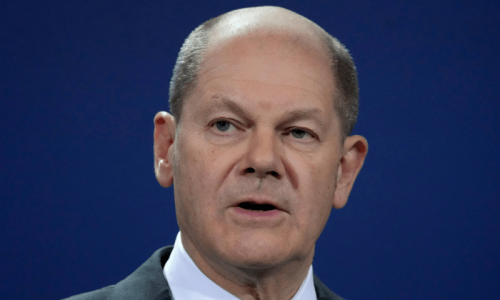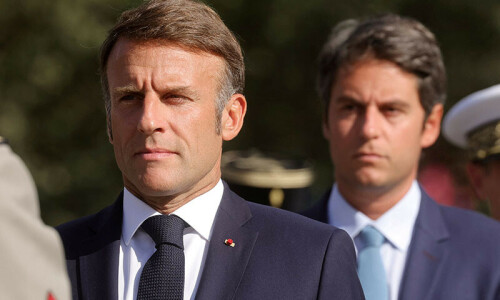BERLIN: German state elections that dealt a heavy blow to the parties in Chancellor Olaf Scholz’s government and historic wins for two anti-establishment parties are likely to aggravate instability in an already fractious ruling coalition.
With only a year to go before a national election in Europe’s largest economy, Sunday’s results look set to increase the pressure on Scholz to be tougher on immigration and intensify the debate over support for Ukraine as issues that dominated campaigning.
The German government’s faltering authority could also complicate European policy when the bloc’s other major power neighbouring France is still struggling to form a government after snap elections in June and July.
All three parties in the federal government looked to have lost votes in the elections in Thuringia and Saxony, according to early projections, which underscored the demise of Scholz’s Social Democrats (SPD) as a big-tent party. The projections by pollster Forschungsgruppe Wahlen published at 9pm put it on just 6-7.6pc of the vote.
Junior coalition partners, the Greens and pro-business Free Democrats, were at risk of being evicted from the Thuringia state parliament for failing to meet the 5pc threshold.
Analysts said the most likely impact of the results would be increased bickering within Scholz’s ideologically heterogeneous coalition.
The far-right Alternative for Germany (AfD) was the big winner of the evening, securing 33.2pc in Thuringia in its first regional election yet, and also gaining almost as many votes as the conservatives in Saxony.
Meanwhile, the leftist populist Sahra Wagenknecht Alliance (BSW), won more votes than all three parties in Scholz’s coalition, gathering 11.5-15.6pc of the vote just eight months after its founding.
The strength of these anti-Nato, anti-immigration and Russia-friendly parties will make forming ideologically coherent coalitions ever harder at both state and federal level.
The coalition partners, in government since 2021, were at odds even before the elections, as tensions had erupted late last year over the budget for this year and next year.
Lost its legitimacy
FDP deputy leader Wolfgang Kubicki said on Sunday the election results showed the coalition had “lost its legitimacy” and was harming his party, which must have consequences.
“With the 2025 budget bill still featuring a gap of some 12 billion euros ($13.25bn), renewed coalition tensions are likely,” said Carsten Nickel at Teneo.
Yet Scholz’s coalition is unlikely to disband altogether as it is not in the interests of the three parties, which are all polling below their 2021 results, said Stefan Marschall, political scientist at the University of Duesseldorf.
Both the BSW and AfD have eroded their support, which has led mainstream parties to toughen their stance on migration and could undermine support for Ukraine.
“The issue will become more fraught, and Germany will likely become more paralysed, meaning others like Poland, France and Italy will need to set the pace,” said Alexander Clarkson at King’s College London.
The creation of the BSW and its legitimisation in this vote could prove particularly damaging for the SPD, which has already lost more than a third of its supporters since 2021 to poll around 16pc, and could see more left-leaning voters drawn away.
The votes will likely also foment a debate about the knock-on effect of uneasy coalitions.
Published in Dawn, September 2nd, 2024














































Dear visitor, the comments section is undergoing an overhaul and will return soon.